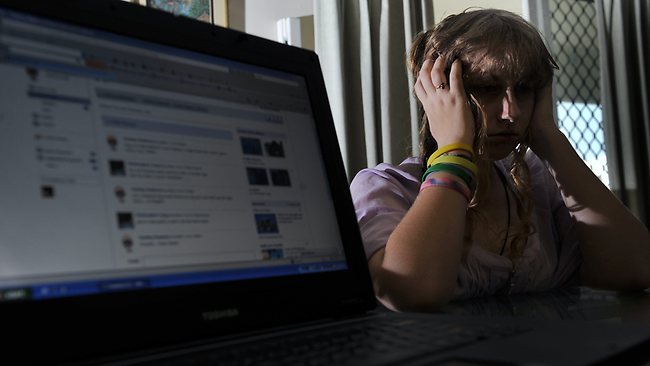 (Picture credit:The Daily Telegraph)
(Picture credit:The Daily Telegraph)
“As information and communication technologies continue to advance, it has become easier and faster for us to communicate with one another, to distribute ideas and information and to make connections with people that transcend geographic and spatial boundaries. What we have noticed at Battered Women’s Support Services is that as use of information and communication technologies has become more ubiquitous, the use of these technologies as a weapon against women has also become ubiquitous.” – Jessica West, Researcher of Cyber-Violence Against Women Report.
Constantly, we are seeing how the online environment is used to humiliate, shame, or silence women and we have been sharing our concerns about the devastating impacts of cyber violence against girls and women. Each and every day at Battered Women’s Support Services we analyse the changes and developments in the system and advocate to create an effective systemic change to response all form of violence. Today, we repeat our concerns about how Bill C-13 fails to recognize the root causes of gender-based violence and sexual harassment in online environment and it can lack providing legal responses to cyber-violence.
To end gender-based violence both in physical and online environment, we need to make the link between cyber-bullying, online gender violence and the spectrum of violence against women in physical environment to address the problem and find solutions. Therefore, it is crucial to further our conversation and develop our collective understanding of what cyber-violence against women and what needs to change, in both society and in policy to end cyber-violence against women.
Please read our report Cyber-Violence Against Women: Recognizing and Resisting Gender Violence in the Online Environment to learn the very real way girls and women are impacted and how girls and women resist. And also, read West Coast LEAF’s below statement to learn why Bill C-13 should address cyber misogyny.
West Coast LEAF concerned Bill C-13 only addresses a small portion of cyber misogyny
Earlier this month, West Coast LEAF made a submission to the House of Commons Standing Committee on Justice and Human Rights regarding Bill C-13, the Protecting Canadians from Online Crime Act.
We are disappointed that Bill C-13 ties the government’s response to cyberbullying and online misogyny to increased state surveillance and law enforcement powers more generally. To protect the rights and interests of vulnerable children and youth, government should be addressing the issue of cyberbullying as an agenda of its own, without making these protections contingent on increased state surveillance on a broad scale. We expressed this in our submission, and we recommended speedy passage of the portions of the Bill addressing the non-consensual distribution of intimate images, gender-based hate speech, and the sending of false information, “indecent” remarks, or harassing messages. The new law will ensure that when sexualized images are shared through text or email without the permission of the woman or girl that is the subject of that image, the perpetrator will face consequences.”
Promoting and protecting the equality rights of women and girls online will require a fundamental shift in the way we think about the Internet, from a lawless, anarchical world where abusers and exploiters can hide behind screen names and false identities, to a place where women’s right to express themselves without fear is prioritized, and where individuals, Internet Service Providers, and social media platforms are held accountable for the ways in which their products are used. Our law reform report, coming soon, will address these issues and more.
Moreover, children, teens and adults need education about their rights and responsibilities online, and need tools to help them be good digital citizens. Rights-based education that talks explicitly about the connection between cyberbullying and power, misogyny, racism, homophobia and transphobia, among other forms of discrimination, must be an essential part of any strategy to address cyberbullying. And that’s just what our new youth education curriculum will deliver. Stay tuned for more details on that, too!
See the full submission to the Standing Committee on Justice and Human Rights.
Learn about the Legal Responses to Cyber misogyny project on our website.
If you could do something to end violence against girls and women, wouldn’t you?





